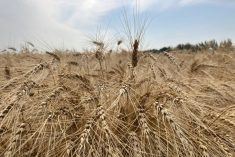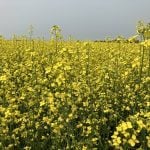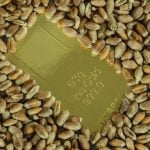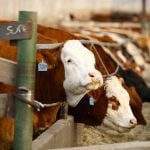Facing “some confusion” at the farm gate as the patent expires on Roundup Ready genetics in Canada, seed giant Pioneer Hi-Bred has filed for Canadian patent protection on several of its soybean varieties.
The DuPont-owned company’s move, announced Thursday, is meant to clarify that the varieties in question are sold for single use only, and not to produce saved seed for subsequent years’ crops.
Though the patent for the original Roundup Ready trait expired in Canada in August, the Pioneer varieties contain intellectual property that will be covered by the new “variety improvement” patents now pending, thus “further supporting our position on single-use seed,” the company said.
Read Also

U.S. grains: Chicago corn, soybeans and wheat firm ahead of crop estimate
Chicago | Reuters — Chicago corn, soybean and wheat futures ticked up on Monday as traders awaited U.S. government harvest…
The expiry on Monsanto’s Roundup-tolerant trait patent “has caused some confusion in the marketplace” and “we want to make sure you understand your commitment prior to purchasing and planting your Pioneer brand seed for 2012,” Pioneer said on its website.
“By protecting soybean varieties with variety improvement patents, we’ll be better equipped to bring growers the innovation, yield gains and increased profitability they expect,” Pioneer president Ian Grant said Thursday in a release.
Also, he said, “we want to be very clear so that our customers are well positioned to make informed choices for the next season without any misunderstanding.
“Pioneer brand seed is sold for a single use. It’s written on the bag tag and included in the terms and conditions customers receive each and every year.”
To that end, the company said it’s building an “awareness, education, audit and compliance” plan around its “numerous” patent-pending varieties.
Past that, however, “if some customers don’t honour their commitment, Pioneer would need to take action to protect the investment that both the company and our customers are making,” the company said.
Each soybean variety developed through Pioneer’s research contains a genetic package that takes an average of seven seasons and an investment of over $1 million to introduce, the company said — and like other seed firms, it uses patents to “help protect their variety development investment.”















